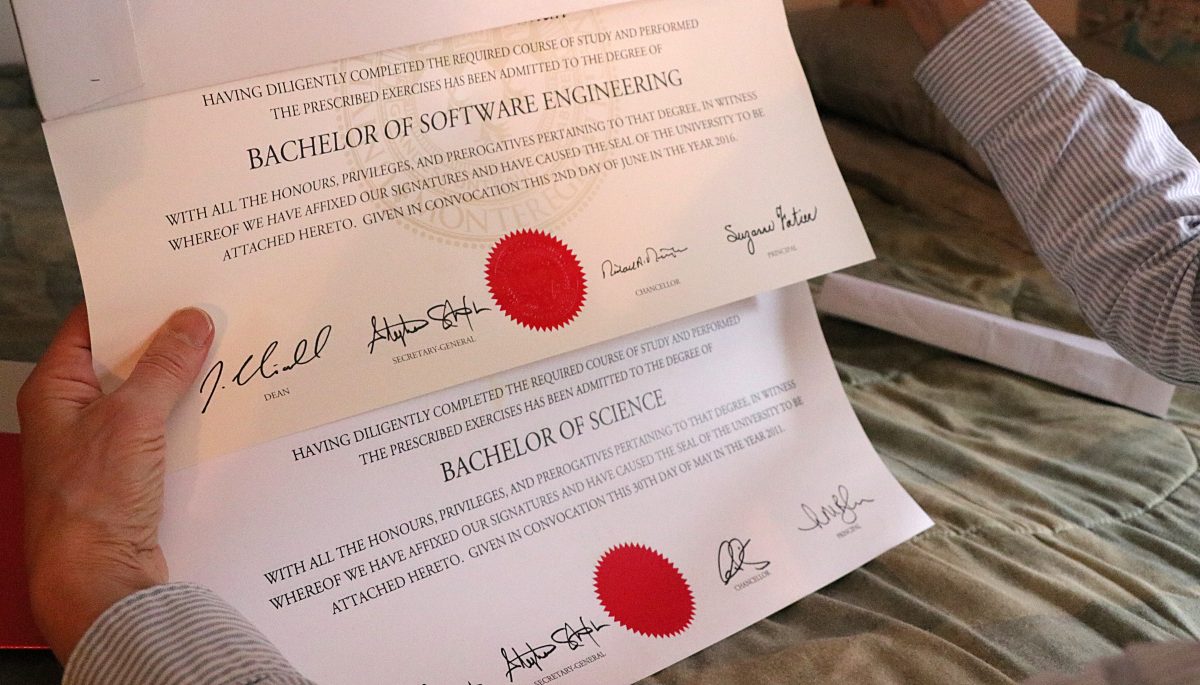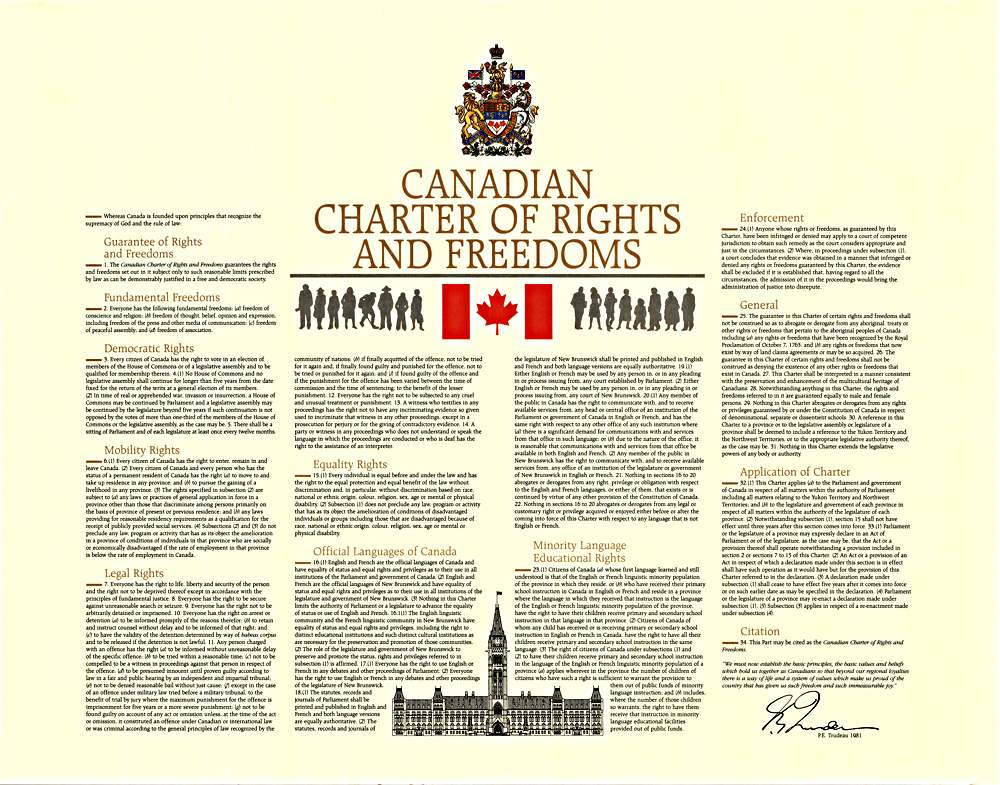
Police banged on Matthew’s (*a pseudonym) door one Saturday morning in October 2015 and demanded his identification. He did not understand why. “I was very confused. The police never said exactly what they were charging me with.” Matthew faced having to go to court and testify with a language disability.
Videos by Marie-Claude Simard/RCI
Stroke caused paralysis, aphasia
Matthew had had a stroke 11 years before at the age of 20. This brain aneurysm left him with paralysis on his dominant, right side and with a language impairment called aphasia. Aphasia can make it difficult to speak and to understand. “It can have a big impact on every day life… and can have devastating effects,” says Guylaine Le Dorze, a renowned expert on aphasia and professor at the University of Montreal.
Criminal offence cited
Two officers came into Matthew’s apartment and began to question him. He asked for a lawyer. The officers handcuffed him with some difficulty because his right hand is twisted and very stiff. They took him to hospital for evaluation. The presiding doctor found him to be normal. Matthew made his way home in the rain and was left with an order to appear in court and the name of the alleged criminal offence.
At the time, Matthew was pursuing a second university degree on very little income and he realized he would need a lawyer.

After his stroke, Matthew obtained a bachelor of science in math and physics and another in engineering. (M-C Simard/RCI)
‘Paralyzed all of a sudden’
More than a decade earlier, in June 2003, Matthew was in the basement of a university building when the stroke felled him. It was three o’clock in the morning and he was alone and not feeling well. Suddenly, his right side was completely paralysed. He went to an elevator to try to get to a place where someone might find him, but his vision blurred and he could not read the symbols on the panel. Before he could trigger the fire alarm, he lost consciousness. A guard found him about ten minutes later and he was rushed to hospital. Matthew describes what happened and how he woke up unable to speak.
Matthew was in a coma for some time and had zero speech when he finally came to. As he got better, he had therapy to recover as much language ability as possible, and to learn to write and do tasks with only his left hand.

Matthew learned to peel an orange with only his left, non-dominant hand. (Marie-Claude Simard/RCI)
Matthew persisted and succeeded in completing his bachelor’s degree in math and physics. He went on to study engineering and was mid-program when police arrested him and he faced a criminal trial.
How to testify?
Matthew applied for free legal aid which is provided by his provincial government to people with living well below the poverty line. He was very worried about having to testify: “For someone like me it really is a problem because…with language difficulties brought on by a stroke it’s very difficult.”
Prof. Le Dorze says people with aphasia might have difficulty understanding questions, giving answers and may even mix up words. “People who have aphasia sometimes say another word instead of the one that they wanted to…” in court, it would make a big difference.”
Matthew asked the legal aid lawyer if he could write his answers in court and she said no. She also did not think the court would offer any other accommodation. Another lawyer who offered to help Matthew told him that was not right and she asked the court to provide him with the services of a speech language pathologist to help him when he testified. The case was eventually taken on by a leading law firm specializing in human and constitutional rights, Grey Casgrain.
Fair trial: A charter right

The Canadian Constitution guarantees the right to a fair trial. (www.justice.gc.ca)
Lawyer Debbie Mankovitz argued that it was Matthew’s constitutional right to have help to testify in court based on both the (province of) Quebec and Canadian Charters of Rights and Freedoms. “You have a right to clearly understand what’s happening and to be able to express yourself to the court…If your first language is not English or French you’re entitled to a translator. And if you are deaf you are entitled to a sign-language interpreter. So, what we were arguing was that if you have speech and language difficulties you should be entitled to a communication intermediary to assist you.”
Speaking slowly ‘not enough’
There were several delays in this case, several court appearances, several different prosecutors and several different judges. One of them asked whether the court officials could not simply speak more slowly and give Matthew plenty of time to reply. Prof. Le Dorze says that would helpful, in fact necessary, but that it would not be enough. A speech language pathologist would ensure that the person with aphasia understands what’s being said and has techniques to help the person choose the words they want to say. “So, Matthew wouldn’t have had enough with just time and a slow speech,” says Le Dorze. “No, that wouldn’t have been enough.”
Court repeatedly failed to provide assistance
Lawyer Mankovitz repeatedly asked for the right to have a communication interpreter for Matthew. There were at least four administrative hearings on how the trial would proceed.The prosecutors did not contest the request for a speech language pathologist for him. And the judges asked that one be provided. But every time they went back to court, there was no speech language, only an English-French translator.
Mankovitz explains: “the administrative coordinator of the court house was under the impression that the service couldn’t be found—there was no list of professionals who would provide the service and they were not willing to undertake to find somebody to provide the service. So, they thought that the defendant should find someone and should pay for that person himself.”
‘My freedom, my life’ at stake
As a result, Matthew would be very disadvantaged, said Mankovitz. “That left him without any kind of support to be able to communicate with the court at his trial…In a criminal trial you can imagine the stakes are high. The stigma and punishment that come with a conviction are serious. And so, it left him very vulnerable.”
Matthew saw the risks in even starker terms. When asked what was at stake he said: “My freedom, basically my life” and as to how it would have affected his career, he said: “I would have been dead…I couldn’t have…I would have gone onto the streets and died.”
A human rights issue
Mankovitz asked the court for a stay of proceedings because the court’s failure to provide communications assistance denied his right to a fair trial. But, in the end the crown presented no evidence against Matthew and he was acquitted. Had the court finally provided assistance, that could have set a precedent and helped others in a similar situation. “It means the issue is unresolved,” said Mankovitz. “It means that there’s a serious access to justice issue that needs to be addressed in Quebec…Absolutely it’s a human rights issue.”
As for Matthew he was relieved for himself but disappointed there would be no change in the judicial system. As he put it, even though this issue affects a small segment of the population, “the system is still not fair for everyone.”
There is an organization in the province of Ontario that lobbies the judiciary on this issue. Communication Disabilities Access Canada has trained and created a roster of communication intermediaries to appear in court to help people with communication disabilities testify in court. Some Ontario courts have hired and paid for them. But efforts continue to ensure this becomes standard practice.
Debbie Mankovitz plans to raise the issue with the association of lawyers in Quebec province. She wants a roster of communication intermediaries to be created and for the courts to provide and pay for their services when people with language disabilities have to testify. This could include people with impairments because of degenerative illnesses, autism, cancer or other conditions.
A job opportunity lost
From beginning to end, Matthew’s court case took more than two years. During that time, he was offered a job which he had to decline because of the pending criminal charge. Once he was acquitted, he completed his bachelor’s degree in software engineering and was accepted into his province’s Order of Engineers. He would like to study for a master’s degree in business analytics if he can find the money to finance it.
At the same time, Matthew participates in many university and public activities involving science, sports, culture and entertainment. He has volunteered to help international students settle in, to walk students safely across campus at night and to help fellow students with computer difficulties. Even more remarkable, he smiles a lot.

Matthew, ever smiling. (Marie-Claude Simard/RCI)
*Matthew did not want us to use his real name because no matter the outcome of his trial, just being charged with a criminal offence can make it harder to get a job.


